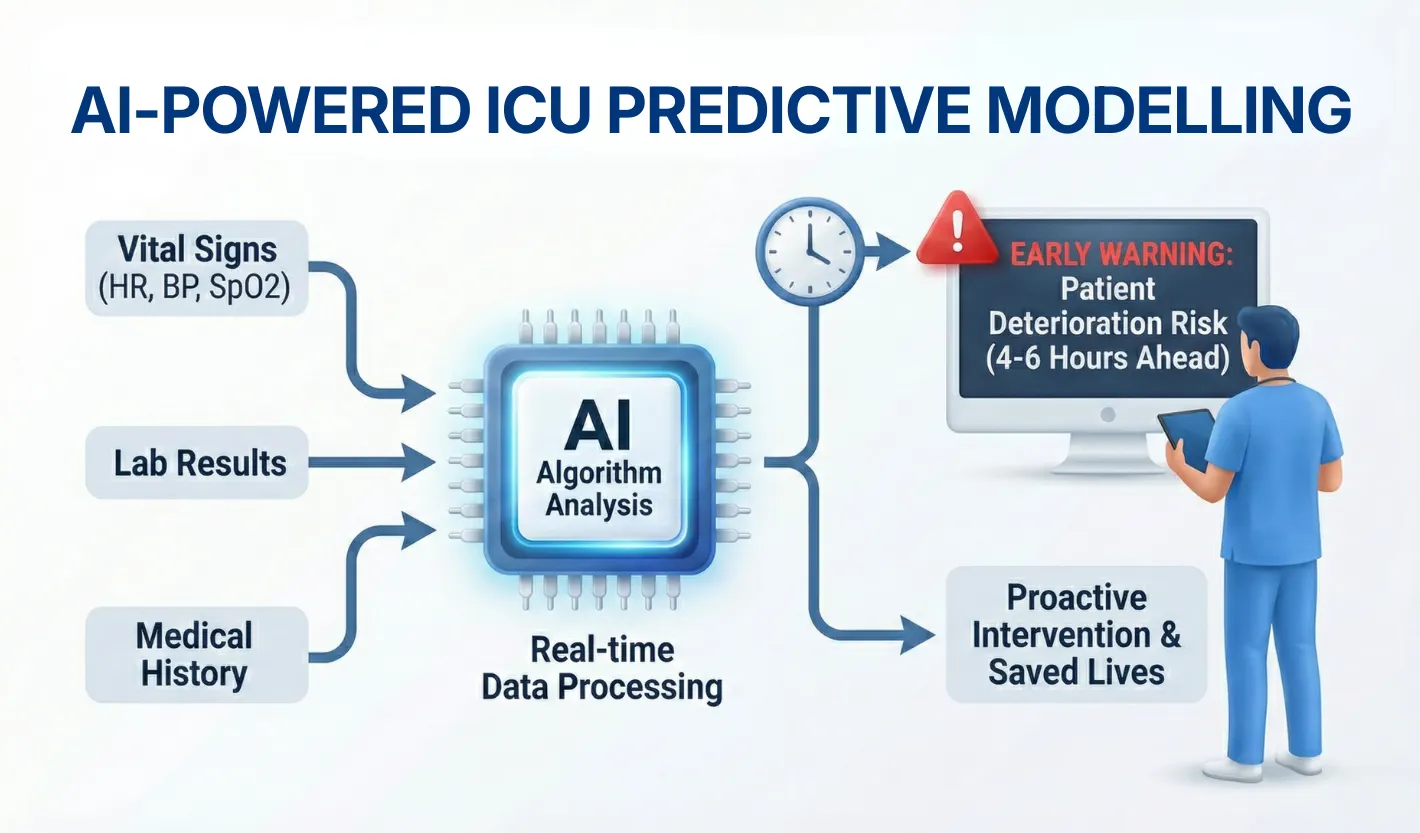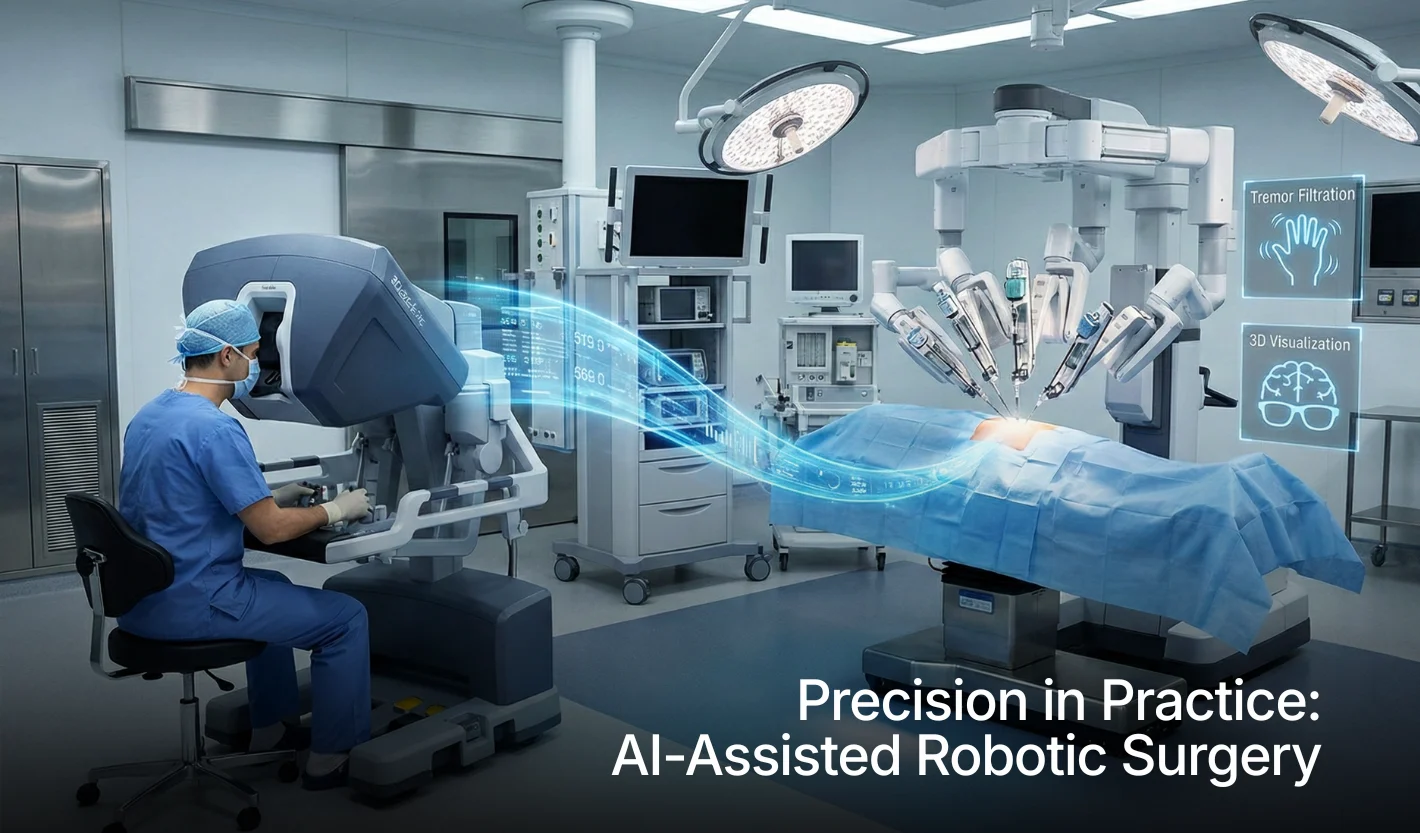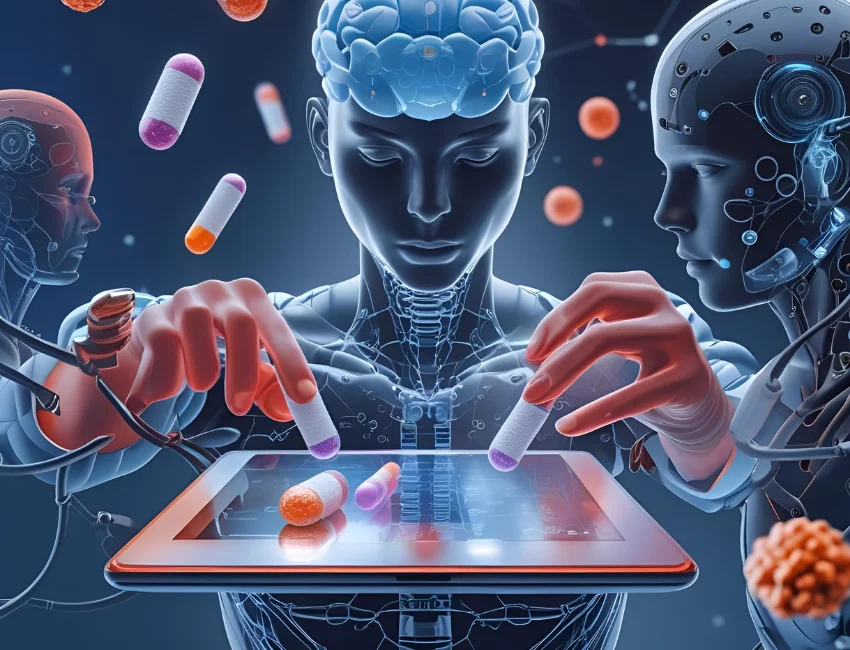

AI in healthcare examples are improves diagnostics, enhances patient care, and automates administrative tasks. Examples include IBM Watson for oncology treatment planning, PathAI for accurate pathology results, Aidoc for radiology image analysis, and Babylon Health for virtual consultations using chatbots.
Artificial Intelligence is no longer a futuristic concept; healthcare systems globally are adopting it to save lives. From surgical assists to monitoring chronic patients, AI’s impact in healthcare is palpable as machine intelligence continues to evolve.
This incredible technology enhances researchers, physicians, and healthcare institutions through predictive medical imaging, automation, and imaging interpretation. Such functions create an efficient healthcare system, making it more intelligent and sophisticated than ever before.
The following ten use cases showcase the application of AI in improving patient outcomes, diagnostic accuracy, clinical workflows, and overall efficiency. Such use cases highlight the AI-driven evolution of healthcare in this technological era.
Let’s know about the shocking AI in healthcare examples.
One of the most powerful AI in healthcare examples is breast cancer detection. With the help of AI, models can be trained with thousands of mammograms, enabling them to detect signs of cancer years ahead of its manual detection.
AI in healthcare tools assist radiologists detect tumors through imaging guided AI tools leading to detection of tumors with greater speed and accuracy. Early detection of tumors reduces the chances of false positive as well as improves the survival rate after preventive surgeries.

Some hospitals now utilize AI technology in Intensive Care Units to forecast patient deterioration up to several hours before the event. These algorithms analyze vital signs, lab data, and the patient’s medical history in real time and warn caregivers in advance.
The prevention of numerous cases of cardiac arrest, respiratory failure, and sepsis testify to the importance of applying AI technology in emergent care, demonstrating its value as one of the most significant uses of AI in medicine.
The analysis of health records, genetic information, and symptoms is made easier by AI, thus providing solutions to the challenge presented by rare diseases. Deep Learning frameworks such as Face2Gene specialize in recognizing faces associated with certain genetic disorders to aid in diagnosis.
Expectations are higher, as using AI powered systems now allows clinicians to reduce the diagnosis time frame from several years to mere weeks, which is a great advantage for patients who previously had no solutions.

The care of virtual nurses has emerged as an innovation in the management of long-term illnesses. These systems receive and manage logs from patients suffering from diabetes, hypertension, and heart diseases, reminding patients to take their medication, monitoring vitals, and notifying physicians of any irregularities.
The implementation of virtual nursing aids are reducing the necessity of physically visiting the hospital and in turn increasing the continuity of care provided. Such systems are life-saving, particularly for underserved populations and in rural regions.
Brain scans are analyzed by AI in a matter of seconds, peripheral vascular diseases and corresponding treatments are diagnosed and suggested. Emergency medical imaging apparatuses are used to expedite the treatment of patients suffering from strokes.
The speed of these decisions can mean the difference between full recovery and living with the damage for the rest of one’s life.

Surgeons are now able to make use of tools that are surgically robotic with intelligent systems like razor sharp Da Vinci Surgical System which help in surgery to improve accuracy and greatly reduce the shaking of hands during operation together with providing vision of the site in three dimensions which is magnified to allow watching easily.
With such examples, one can observe that the AI systems enhance but do not replace human expertise and improve the results of the operations.
AI models were developed to evaluate lung scans for signs of COVID-19 infection within minutes during the pandemic. AI was also used in contact tracing, anticipating outbreaks, and managing hospital resources.
These tools utilized quantitative data to facilitate real-time decision-making and expedited response to the pandemic, thus saving lives.

By predicting molecular interactions with the human body, AI accelerates drug discovery. Companies like DeepMind and BenevolentAI only recently applied AI to develop new therapies for cancer and neurodegenerative diseases.
Transformative for life-threatening disease research and development (R&D), this application enables smarter, faster, and more efficient work.
Wysa and Woebot chatbots emotionally assist with mental health problems such as depression, anxiety, and stress in real time. They evaluate user responses and either recommend particular exercises or refer more serious cases to human therapists.
AI Chatbots expand access to mental health care by providing 24/7 resources and shifting stigma around psychological assistance.
Cybersecurity AI tools monitor hospital systems for irregularities including data breaches and fraud. Safeguarding electronic health records and financial information is critical, especially within large healthcare networks, to ensure patient safety.
These systems bolster trust by detecting sensitive healthcare operations early and preserving exposed systems from intrusion.
All of these AI in healthcare examples underscore one vital fact: AI is continuously enhancing human abilities to provide safer, speedier, and more precise healthcare services. These systems reduce costs and eliminate risks for both patients and healthcare personnel while improving response time, accuracy, and reducing diagnostic errors.
AI technology has become inseparable from contemporary medicine. It nurtures precision and process optimization, which strengthens operational efficiency and elevates the quality of care.
As access to data expands and algorithms transform, AI is set to redefine the horizon of healthcare with its myriad applications ranging from wearable health monitors to DNA-based therapies. Pillar virtual consultations and predictive diagnostics are poised to become integral healthcare services.
The early investors among hospitals, MedTech innovators, and biotech firms focused on AI will be at the forefront of this shift, offering preventative care in addition to tailored health journeys, evolving them from simple treatment providers to holistic health partners.
WebOsmotic helps healthcare institutions unlock the full potential of AI by customizing systems that make a difference in the real world, from imaging and diagnostics to virtual healthcare and data security. We aim to implement life-saving AI applications with hospitals and startups, as well as pharma R&D teams. If you loved these AI in healthcare examples, and want to build a smarter and safer healthcare infrastructure, contact us today and let’s get started.